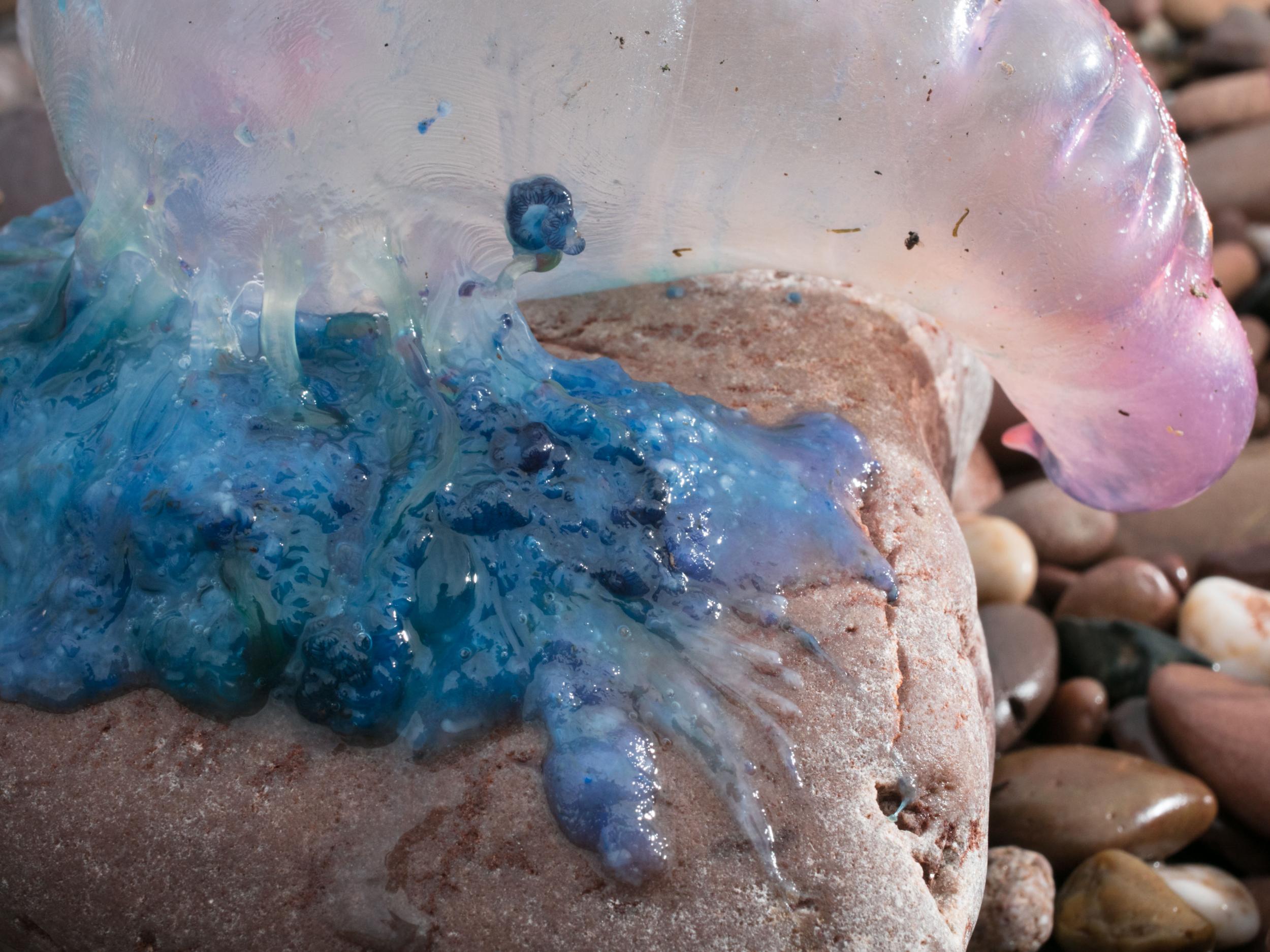Thousands stung as jellyfish invasion forces popular swimming spots to close in Australia
Bluebottle jellyfish, also known as Portuguese man o'war, are regular visitors to Australia's east coast during summer

Thousands of holidaymakers have been stung by jellyfish after a vast number of the sea creatures swarmed beaches in Queensland, Australia.
Surf Life Saving Queensland said a “whopping” 3,595 people were attacked, forcing the closure of popular swimming spots across the northern state.
Lifeguards said the invasion was caused by unusually strong north-easterly winds pushing the marine animals close to shore.
Queensland's heavily populated Gold Coast and Sunshine Coast regions were worst hit.
While no fatalities have been reported, several people suffered anaphylactic shock and were treated by paramedics during the weekend, Nine News reported.
A message posted to the SLSQ Twitter page warned people to stay out of the water to avoid being stung.
“#CLOSED #BLUEBOTTLE A wall of bluebottles is approaching #Rainbow beach. Lifesavers are closing the beach. Please stay out of the water.”
According to the Australian Museum, between 10,000 and 30,000 stings are reported along the country's east coast each year.
Bluebottle jellyfish, also known as Portuguese man o'war, are regular visitors to Australia's east coast during summer.
For most people the painful stings are not life-threatening and can be treated with ice or hot water.
However those with allergies, as well as the young and the elderly, are at risk of suffering complications.
Join our commenting forum
Join thought-provoking conversations, follow other Independent readers and see their replies
Comments
Bookmark popover
Removed from bookmarks